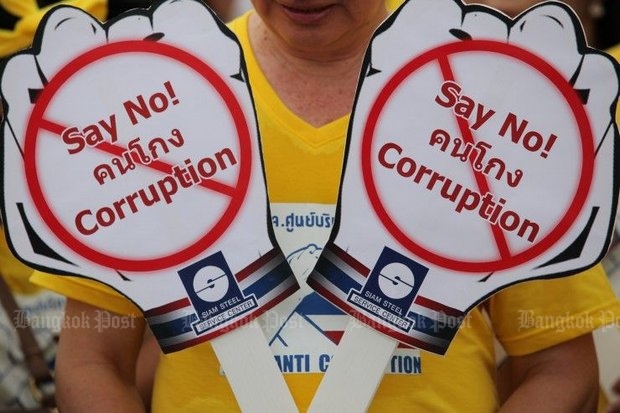
A group of Thai Airways International (THAI) employees have called on Prime Minister Prayut Chan-o-cha to exercise his power under Section 44 to probe the national carrier's procurement contracts to see if any were tainted by graft.
About 200 members of the so-called THAI Employees Fighting Corruption group gathered at the airline's operations building to demand the probe be formed by invoking Section 44 of the interim charter.
Nares Puengyam, the group's representative, said Section 44 would enable the premier to set up a special committee to investigate all procurement contracts secured by the airline for any irregularities.
Any such irregularities would constitute policy-oriented corruption, which must be dealt with, according to the group.
The move follows a scandal in which Rolls-Royce admitted to paying bribes to Thai agents or officials to sell engines to THAI between 1991 and 2005.
Mr Nares said the airline decided to lower the age of its fleet, forcing the carrier to acquire up to 75 new aircraft valued at over 400 billion baht in two lots between 2011 and 2022.
The planned acquisition was incorporated into the company's restructuring masterplan back in 2009.
The acquisition plan meant that almost 50 planes would need to be replaced ahead of time. THAI's fleet is comprised of both Airbus and Boeing aircraft.
Its Airbus planes have an average 20-year lifespan before they need to be replaced while Boeing's lifespan is 25 years.
Any incumbent executives of the company who sat on the restructuring master plan committee from 2009 and 2011 must resign to face up to their responsibility for what the group said was the airline's ongoing losses and accumulated debts.
At least one executive on the current board assumed a role in the master plan committee, according to the group.
Mr Nares added the group would discuss the issue with THAI's labour union and ask the government and anti-graft agencies to scrutinise the national carrier's balance sheet.
The group also plans to petition the Prime Minister's Office, the National Anti-Corruption Commission and the Office of the Auditor General to examine the company's finances to see if its accounts had been embellished.
